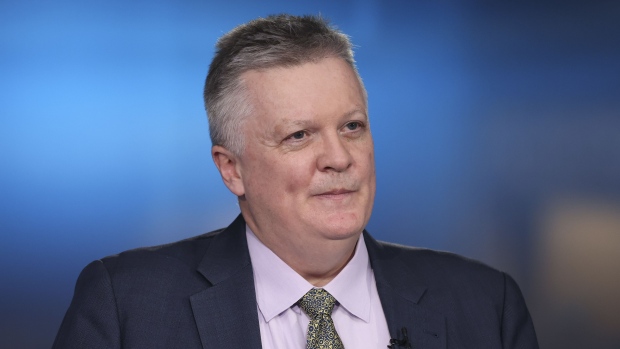Nov 23, 2022
BOE’s Top Economist Says More Rate Rises Needed To Tackle Inflation
, Bloomberg News

(Bloomberg) -- The Bank of England needs to raise interest rates further to tackle inflationary pressures that are becoming increasingly domestic, Chief Economist Huw Pill said.
“My judgment there is still some more to do in order to address prevailing inflationary pressures and complete the necessary normalisation of monetary policy following a decade or more of exceptional accommodation,” he said at the Beesley Lecture in London Wednesday.
The BOE has raised rates from 0.1% to 3% in the past year, with Pill among the majority who voted for a historic increase of three quarters of a percent this month.
Inflation is at a four decade high of 11.1%, more than five times the BOE’s 2% target. It is thought to have peaked but is expected to remain elevated throughout 2023. Markets expect a half-point rate rise in December, and the Organisation for Economic Cooperation and Development forecasts rates to reach 4.5% by June.
Pill said the main two factors behind rising inflation are energy prices and job shortages, with the UK facing acute pressures caused by half a million people dropping out of the workforce since the start of the pandemic. He said his decisions will be influenced by developments in “the labor market and corporate pricing behaviour.”
Recent BOE surveys show companies planning to increase both wages and prices.
Laser Focus
Pill repeated the BOE’s argument that rates are not likely to rise above 5%, as priced by markets at the start of the month. “But, given the need to contain the risk of greater inflation persistence implied by potential second-round effects, further action is likely to be required,” he said.
BOE forecasts show inflation falling below the 2% target in 2024, even under a scenario where interest rates remain at current levels. That’s prompted more dovish members of the Monetary Policy Committee to warn of the risk of overtightening.
However, in comments following his speech Pill said the BOE was maintaining a “laser-like focus” on its mission.
“High inflation begets high price setting, higher wage demands -- it is focus on those things that are key. It is those things that can persist into the 18-month or 2-year horizon,” he said.
“When you get big shocks all at once, in the same direction, you get a big, and hopefully temporary -- we will ensure it is temporary -- departure from target.”
In an apparent response to criticisms that the BOE responded too late to inflation at the end of the pandemic, Pill said policymakers had taken a “risk management approach erring on the side of more policy support” because they believed “risks were heavily skewed to the downside.”
That left policy “over-stimulative” but he stressed: “I don’t see this as being an important driver of inflation’s rise above target over the past year.” Earlier this month he accepted that the BOE should have moved sooner “in hindisght.”
Pill joined the BOE in September 2021, shortly before it started to raise rates.
©2022 Bloomberg L.P.





